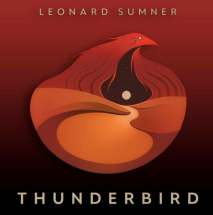What goes around Singer-songwriter revisits his hip-hop roots on new album that plumbs his past
Read this article for free:
or
Already have an account? Log in here »
To continue reading, please subscribe:
Monthly Digital Subscription
$0 for the first 4 weeks*
- Enjoy unlimited reading on winnipegfreepress.com
- Read the E-Edition, our digital replica newspaper
- Access News Break, our award-winning app
- Play interactive puzzles
*No charge for 4 weeks then price increases to the regular rate of $19.00 plus GST every four weeks. Offer available to new and qualified returning subscribers only. Cancel any time.
Monthly Digital Subscription
$4.75/week*
- Enjoy unlimited reading on winnipegfreepress.com
- Read the E-Edition, our digital replica newspaper
- Access News Break, our award-winning app
- Play interactive puzzles
*Billed as $19 plus GST every four weeks. Cancel any time.
To continue reading, please subscribe:
Add Free Press access to your Brandon Sun subscription for only an additional
$1 for the first 4 weeks*
*Your next subscription payment will increase by $1.00 and you will be charged $16.99 plus GST for four weeks. After four weeks, your payment will increase to $23.99 plus GST every four weeks.
Read unlimited articles for free today:
or
Already have an account? Log in here »
Hey there, time traveller!
This article was published 21/04/2021 (1698 days ago), so information in it may no longer be current.
Leonard Sumner’s musical journey has come full circle in more ways than one.

In March, the Anishinaabe singer-songwriter from Little Saskatchewan First Nation released Thunderbird, his third full-length album and a return to his roots as a hip-hop artist.
Sumner has never been tied to one sound; since 2013, he’s been putting out music that blends folk, country and rap vocals atop the steady strumming of his acoustic guitar. In Thunderbird, the twang has been replaced with beats and rhymes.
“I was able to launch a career in the folk world,” he says. “I was taking my time in a different genre and now I felt like I wanted to come back to hip hop.”
Sumner started working on the eight-track album in 2019 as a way to cope with the recent death of his mother. The name came first — Othawii Pinaythee or Brown Thunderbird was his mother’s spirit name — and the songs flowed out of the archives.
“I told myself, ‘I need to do something to keep my mind occupied, to have some space for this grief to go,’ “ he says. “I started going back into the drafts of my old writing and saying, ‘OK, I want to take a little piece from here and maybe I’ll turn that into something.’”
Revisiting lyrics from nearly a decade earlier gave Sumner a new perspective on the subject matter. Songs such as Mourningstar, which chronicles the journey of three people through the residential-school and child-welfare systems, took on a different feeling this time around.
“In the demo version I was angry; you could hear it… revisiting the song that many years later, I was able to deliver it with a different cadence, from love rather than from anger,” Sumner says, adding that time has always been a necessary ingredient in his songwriting process. “(Songs) are like living relationships. Sometimes they grow and they become different things than what you originally intended.”
The song I4ni followed a similar progression. He wrote the song years ago as a meditation on colonization and Indigenous reclamation and since has added several verses in Ojibwe, a language he’s not yet fluent in, but has started learning with the help of his father.

Like many musicians, Sumner writes about what he knows, although sometimes he wonders if that’s the right approach to take.
“Am I doing any good talking about these things? Like, I don’t want to become somebody that’s just perpetuating poverty porn for people to listen to,” he says. “Are these songs creating positive change within our community? And from the messages I get from people, I believe that’s happening.”
He grapples with those questions by staying true to himself and those around him.
“I don’t see it as activism — I just see it as storytelling,” Sumner says of his music. “I’m not out there writing hard-luck stories for the sake of it. I’m helping express grief and I’m helping heal myself on my own journey. And through that, other people are also finding some peace in their experiences as well.”
While Thunderbird touches on serious topics, including the 2011 flood that has displaced many Little Saskatchewan residents, it also celebrates Sumner’s love for his family.

A few months after his mother died, Sumner and his wife, Tasha Spillett-Sumner — a local author whose children’s book, I Sang You Down From the Stars, recently made the New York Times bestseller list — found out they were expecting their first child. Their daughter Isabella was born in March 2020, a week before the world shut down.
Sumner had already finished recording the album — another full-circle moment, since he reconnected in the studio with Montreal producer David Hodges, who had worked on his first album — when the coronavirus pandemic arrived in Canada. He held off on its release for a year while the public health crisis raged. He decided to finally put it out this year on his daughter’s first birthday.
“It’s definitely a journey,” he says. “It feels awesome, it feels great. I love having it out… as an independent (musician), I’ve always just let it be out in the world and let it travel and do its thing.”
Thunderbird is available for download on most major streaming services.
eva.wasney@freepress.mb.ca
Twitter: @evawasney

Our newsroom depends on a growing audience of readers to power our journalism. If you are not a paid reader, please consider becoming a subscriber.
Our newsroom depends on its audience of readers to power our journalism. Thank you for your support.
History
Updated on Thursday, April 22, 2021 8:56 AM CDT: Fixes typo








